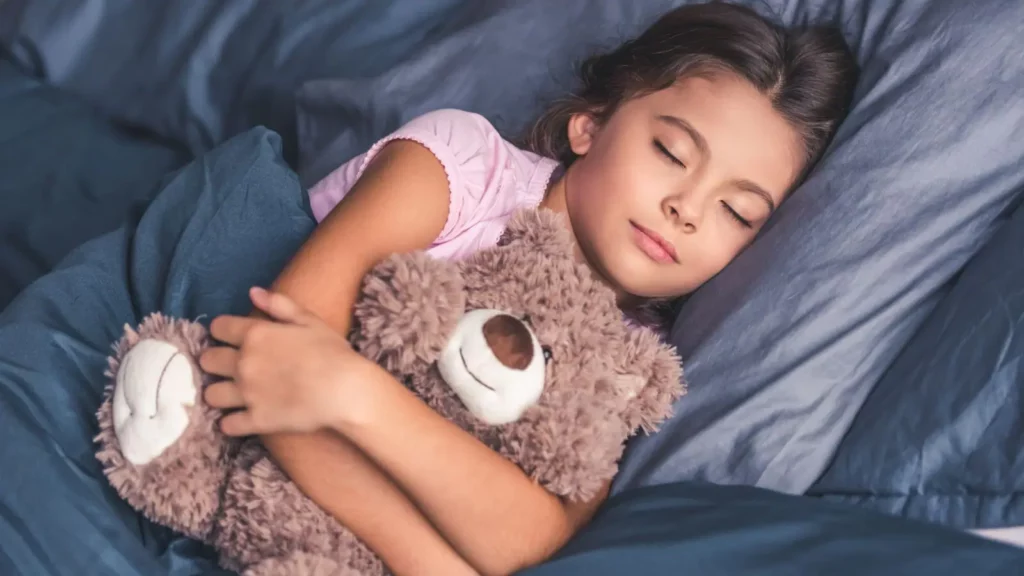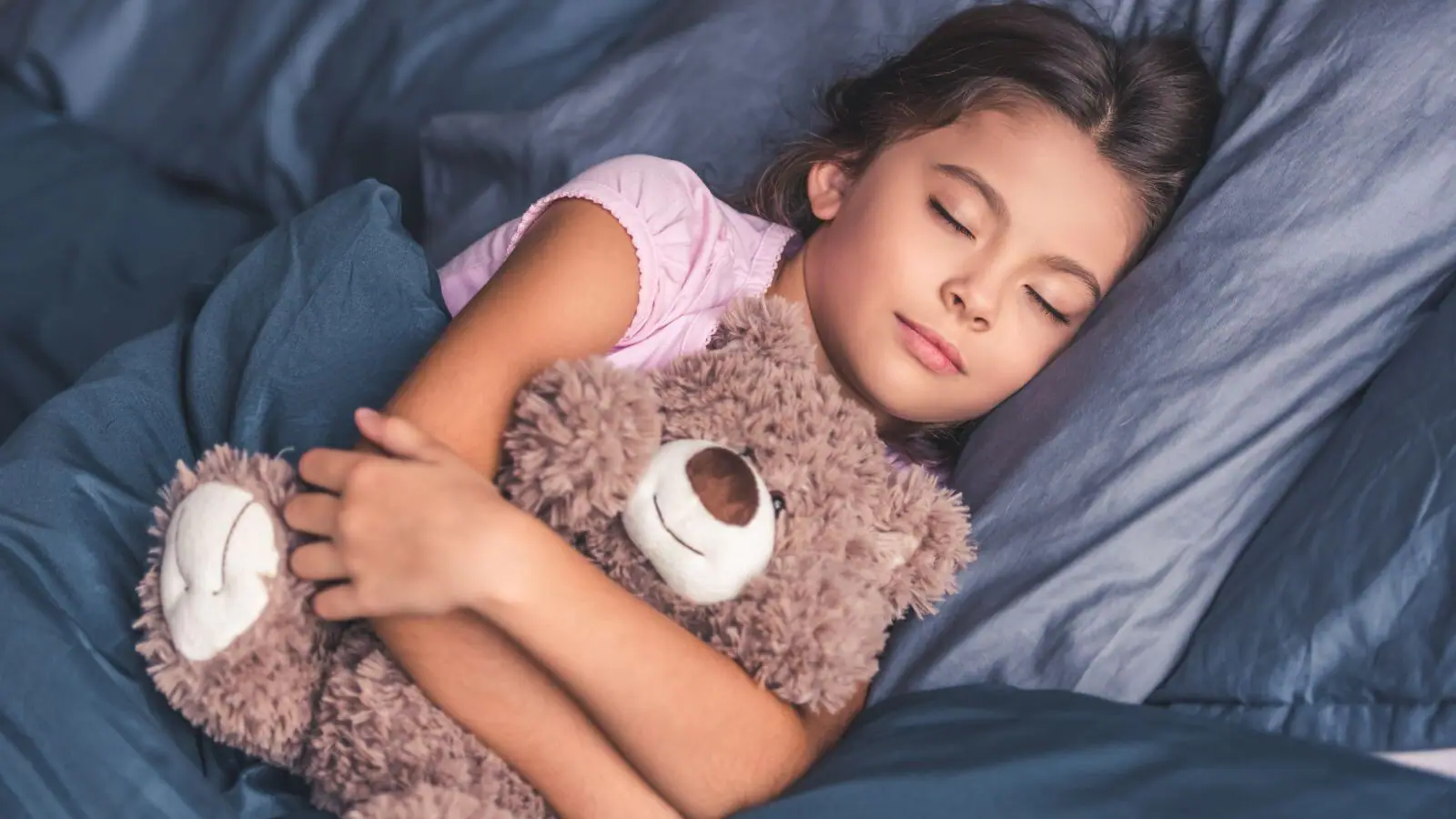Every parent needs to understand the value of sleep for themselves and their kids. It fosters more friendly and productive family interactions when done correctly and for a sufficient amount of time.
Ideas for better sleep for teens support the relevance of sleep quality, quantity, and timing for physical and mental well-being.

Children who don’t get enough sleep have hormonal changes that worsen their mental and physical health, increase “appetite and food consumption leading to obesity,” and increase obesity.
Healthy sleep habits can improve both the quantity and quality of your sleep while reducing anxiety and nocturnal resistance. We’ll go over various methods, provide advice, and suggest some apps that can help you put your kids to sleep quickly and easily.
What Is Sleep Hygiene?
All across the world, people frequently experience acute or chronic sleep problems. As per reports of a study done by a consumer products giant, almost 93% Indians are sleep-deprived. And 31.6% of people in ten countries receive a professional diagnosis of insomnia.
Not only does getting adequate sleep make us feel less worn out the next day. It impacts our motivation, cognitive function, and risk of contracting life-threatening diseases, including cancer, diabetes, and cardiovascular disease.
Lack of proper sleep, particularly REM sleep, has been linked to depression prevalence in people of all ages and creative thinking and emotional response. Even though sleep is essential and has many benefits, treatment interventions are typically only given to those who satisfy the requirements for a clinical issue or actively seek assistance.
Fortunately, self-help techniques for enhancing sleep have been successful.
Sleep hygiene is the most effective and dependable way to achieve high-quality sleep. Additionally, it is needed for the Rapid eye movement (REM) phase, which is vital for solidifying memories of the day’s lessons.
Even though most research on sleep hygiene is conducted in clinical settings, it has enormous potential for improving sleep quality and, consequently, the health of the general public and, in particular, the well-being of children.
The ability of young individuals to control their behavior, pay attention, and achieve academically is significantly harmed by sleep deprivation.
Encouraging Healthy Sleep Habits in Kids & Teens
There’s a lot of advice available to promote healthy sleeping habits in children. Most of it focuses on circumstances and behaviors parents may encourage, and children can quickly adapt.
Tips to help maintain sleep hygiene for kids and teens include the following:
- Consistency: Every day of the week, including the weekends, maintain the same wake-up and bedtimes. A consistent sleep schedule should coincide with the child’s biological clock to promote constant sleepiness.
- Bedtime Regularity: Establish a regular and predictable evening routine, such as brushing your teeth, taking a warm bath, reading a bedtime story, and turning out the lights, to prevent feeling anxious about going to sleep.
- Bed is Connected to Sleep: Kids may begin to identify being in bed only with sleep if they spend a lot of time awake.
- Calming Techniques: Children may find it easier to unwind and prepare for bed if they slow their breathing and visualize calm places, such as the beach or vacations.
- Keep the Right Ambiance in the Place: A child’s room should be peaceful, comfortable, and quiet.
- View of a Timepiece: Sleep suffers when you monitor the time all night. To avoid the stress it produces, move the clock, cover it, or face it on the other side.
- Before Going to bed, Avoid Doing Anything Thrilling: Playing video games or working out shortly before bed is not recommended. It is recommended to avoid using electronics and digital devices in the bedroom.
- Security Objects: Dolls, soft toys, and blankets can ease children into feeling safe and secure in bed when you leave them to fall asleep.
- Do Some Daily Exercise: Exercise throughout the day has numerous additional advantages for both physical and mental health, but it can also improve sleep at night.
- Bedtime Delay: To help children sleep more quickly, it may be necessary to wait 30 minutes before bed if they don’t genuinely look tired. Over the next few days, parents can raise the bedtime.
- Maintain a sleep diary: Keep note of your child’s bedtimes and activities to find out what gets in the way of their ability to sleep at night and what helps them.
- Tossing and Turning: When a child is not comfortable in bed, it is better to get them off the bed for a little bit to do a low-stimulation activity like reading a book before putting them in bed again.
- Schedule Worry Time: If your kids worry or think after laying in bed, it may be helpful and amusing to have a convo earlier in the day to share fears and concerns.
- Avoid Sleeping Elsewhere: Falling asleep in different locations can become a habit. Encourage the kid to go to bed sleepy.
- Brief & Boring Checks: Keep it quiet when checking on your kid. Reassure your kids that you are nearby, but without extreme stimulation.
While many, if not every, above methods remain helpful for teens, a few more associated with this age group exist.
- Screen curfew: Keep blue light-emitting devices out of the bedroom.
- Avoid caffeine: Avoid tea, coffee, chocolate, and soda within six hours before bedtime.
- Bedroom environment: The sleeping environment is critical in every age group, yet during teenage years when hobbies and interests develop, it is essential to ensure the comfort of the bedroom.
Must Read:- 5 Reasons Why Your Toddler’s Tantrum Maybe A Good Sign
Conclusion
Kids’ sleep is one of the most ordinary concerns of parents. If your child has trouble sleeping lately, consider taking them to a child specialist. Ankura Hospital has the best child specialists, features, and state-of-the-art machines.
Suggested blog:- Toddlers’ eating habits and How to feed them healthy




